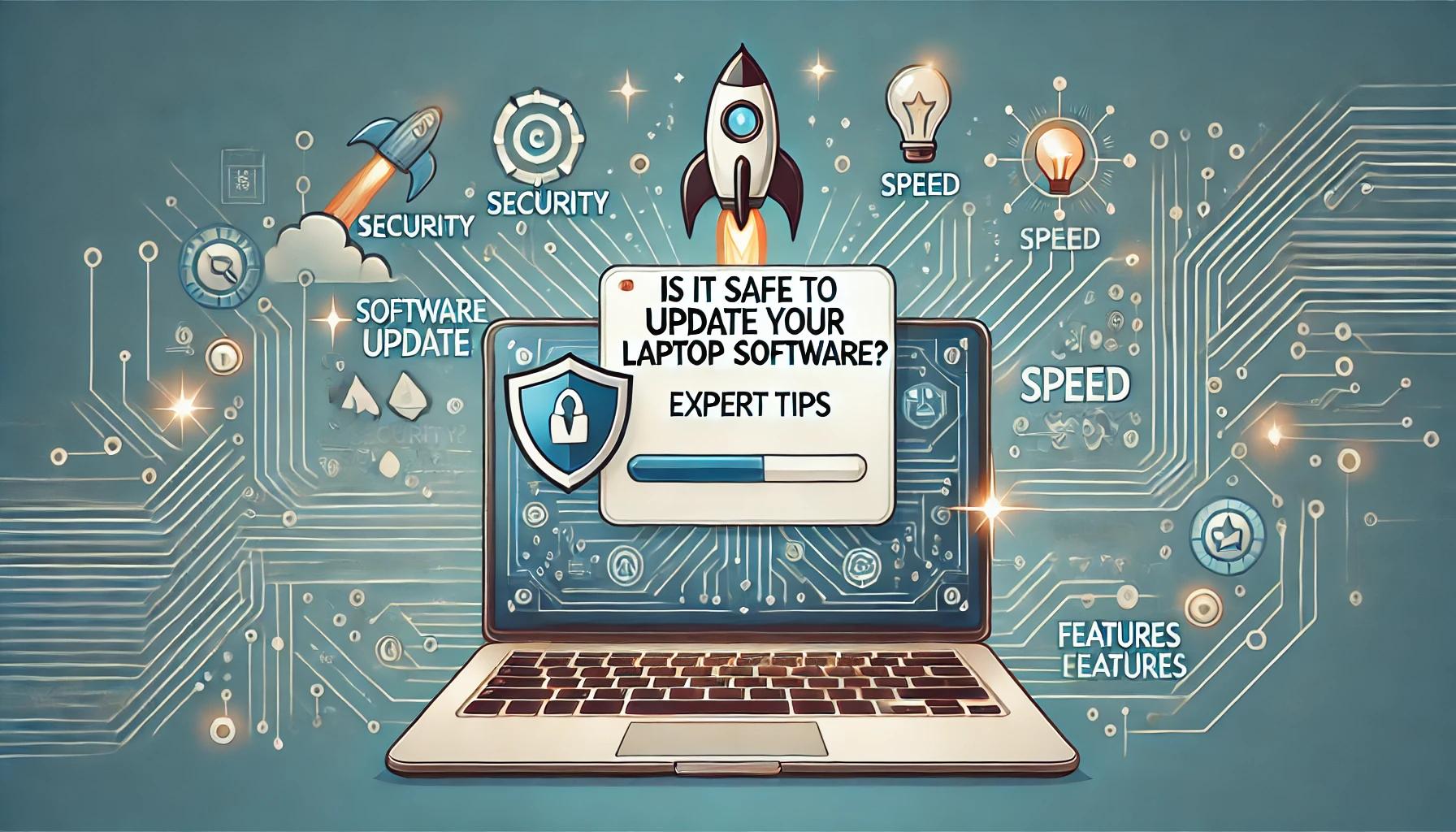Keeping your laptop’s software updated is essential for maintaining optimal performance and security. However, many users question whether updating their software is truly safe. SaskTechSupport, a leading provider of remote tech support services, offers expert advice to help you navigate the complexities of software updates. In this comprehensive guide, we’ll address the safety of updating software, provide step-by-step tips, and explain how you can ensure a seamless and secure update process.
Why Updating Your Laptop Software Is Crucial
1. Improved Security
Software updates often include security patches that fix vulnerabilities identified in earlier versions. Without these patches, your laptop becomes susceptible to malware, phishing attacks, and unauthorized access. Updating ensures you’re protected against the latest threats.
2. Enhanced Performance
Newer software versions are typically optimized for better speed, efficiency, and compatibility. Updating can resolve bugs, reduce crashes, and improve your laptop’s overall performance.
3. Access to New Features
Updates frequently introduce innovative features and functionalities that enhance your user experience. By staying updated, you ensure you’re benefiting from the latest advancements in technology.
The Risks of Updating Laptop Software
While updates are generally safe, some risks can arise if the process is not handled properly:
- Data Loss: Poor preparation can result in the loss of important files.
- Compatibility Issues: Older hardware might struggle to support the latest software updates.
- Interrupted Updates: Power outages or connectivity issues during updates can corrupt your software.
By following best practices, you can mitigate these risks effectively.
Expert Tips for Safe Laptop Software Updates
1. Backup Your Data Before Updating
Before initiating any software update, back up your data to a secure location. Use an external hard drive or cloud storage to ensure your files are safe, even if something goes wrong.
2. Check System Requirements
Verify that your laptop meets the minimum system requirements for the software update. This helps avoid performance issues or software crashes.
3. Update One Software at a Time
Updating multiple applications or the operating system simultaneously can lead to conflicts. Prioritize critical updates first, such as operating system and antivirus updates.
4. Use a Stable Internet Connection
Ensure a reliable internet connection to prevent interruptions during the download or installation process. Interrupted updates can lead to corrupted software.
5. Disable Antivirus Temporarily
Some antivirus programs may interfere with software updates. Temporarily disabling your antivirus during the update process can help avoid installation errors.
6. Avoid Beta Versions
Unless you’re a developer or tech enthusiast, avoid installing beta versions of software. These versions are often unstable and prone to bugs.
7. Monitor Disk Space
Ensure sufficient disk space on your laptop before starting the update. Insufficient space can cause the update to fail.
Steps to Safely Update Your Laptop Software
Step 1: Check for Updates
Navigate to your laptop’s settings or the application’s preferences menu to look for available updates. Many operating systems, such as Windows or macOS, offer automatic update notifications.
Step 2: Schedule the Update
Choose a convenient time for the update, ensuring your laptop is connected to a power source and won’t be needed for urgent tasks.
Step 3: Backup Important Files
Create a backup of essential documents, photos, and software settings using tools like Google Drive, OneDrive, or an external hard drive.
Step 4: Begin the Update Process
Follow the on-screen prompts to start the update. Avoid using your laptop for other tasks during this time to prevent disruptions.
Step 5: Restart and Verify
After the update completes, restart your laptop to ensure all changes take effect. Verify the update by checking the software version in the settings.
What to Do If a Software Update Fails
Even with careful preparation, updates may occasionally fail. Here’s how to troubleshoot:
- Restart Your Laptop: A simple restart can resolve temporary issues.
- Reattempt the Update: Retry the update process after addressing potential problems, such as low disk space or unstable internet.
- Seek Professional Help: If the issue persists, contact SaskTechSupport for remote troubleshooting and resolution.
Common Myths About Software Updates
Myth 1: Updates Slow Down Your Laptop
Reality: Updates often enhance performance. If your laptop feels slower, it might be due to outdated hardware or other factors.
Myth 2: You Don’t Need Updates If Everything Works Fine
Reality: Even if your laptop appears functional, skipping updates leaves you vulnerable to security threats and performance issues.
Myth 3: All Updates Are Risky
Reality: Most updates are rigorously tested before release. By following expert tips, you can minimize any associated risks.
Why Choose SaskTechSupport for Your Laptop Needs?
SaskTechSupport specializes in providing top-notch remote tech support services across Saskatchewan and beyond. With over 20 years of experience, they offer:
- Expert Guidance: Tailored advice for safe and efficient software updates.
- Comprehensive Support: Assistance with troubleshooting, backups, and compatibility checks.
- Unmatched Reliability: Trusted by thousands for seamless tech solutions.
Conclusion
Updating your laptop software is not just safe but essential for maintaining optimal performance, security, and user experience. By following expert tips from SaskTechSupport, you can ensure a smooth update process while mitigating potential risks. Prioritize regular updates to keep your laptop running efficiently and securely.
For any technical challenges or further assistance, contact SaskTechSupport, your reliable partner in remote tech solutions.
















